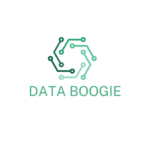Supply Chain Software Development
- Importance of Supply Chain Software: Effective supply chain management relies on specialized software solutions to automate processes, enhance visibility, and improve decision-making, driving profitability and customer satisfaction.
- Key Features Include: Essential features of supply chain software comprise inventory management, order processing, and demand forecasting, all of which are crucial for optimizing operations and improving resource allocation.
- Technological Integration: The incorporation of advanced technologies like AI and machine learning into supply chain software enhances demand forecasting accuracy, automates processes, and allows organizations to respond proactively to market changes.
- Collaboration and Efficiency: Enhanced collaboration among supply chain stakeholders is facilitated by integrated software platforms, leading to improved transparency, stronger partnerships, and increased operational efficiency.
- Challenges to Address: Organizations face challenges such as integration with existing systems and scalability concerns during supply chain software development, requiring careful planning and ongoing assessment.
- Future Trends: Emerging trends, particularly the adoption of blockchain technology and further advancements in AI and ML, promise to transform supply chain transparency, security, and overall operational agility.
In today’s fast-paced business environment, efficient supply chain management is crucial for success. Companies are increasingly turning to supply chain software development to streamline operations, enhance visibility, and improve decision-making. This technology not only automates processes but also fosters collaboration among stakeholders, ultimately driving profitability and customer satisfaction.
As organizations face mounting pressures to adapt to changing market dynamics, the role of innovative software solutions becomes even more vital. From inventory management to logistics optimization, supply chain software offers a comprehensive approach to tackling complex challenges. Understanding the intricacies of supply chain software development is essential for businesses looking to stay competitive and agile in a rapidly evolving landscape.
Overview of Supply Chain Software Development
 Supply chain software development focuses on creating solutions that optimize and streamline various supply chain processes. It encompasses a range of functionalities, including inventory management, order processing, logistics management, and supplier collaboration. Businesses increasingly invest in developing custom software tailored to their specific supply chain needs to enhance overall efficiency. Supply chain software often integrates advanced technologies, such as artificial intelligence (AI) and machine learning (ML). These technologies analyze data and predict trends, helping organizations make informed decisions. Custom software can improve accuracy and reduce manual errors, leading to more effective management of resources.
Supply chain software development focuses on creating solutions that optimize and streamline various supply chain processes. It encompasses a range of functionalities, including inventory management, order processing, logistics management, and supplier collaboration. Businesses increasingly invest in developing custom software tailored to their specific supply chain needs to enhance overall efficiency. Supply chain software often integrates advanced technologies, such as artificial intelligence (AI) and machine learning (ML). These technologies analyze data and predict trends, helping organizations make informed decisions. Custom software can improve accuracy and reduce manual errors, leading to more effective management of resources.
Development teams employ agile methodologies to ensure flexibility and responsiveness during the software development process. This approach allows for rapid iterations based on user feedback, enhancing the final product’s alignment with organizational goals. Collaboration among stakeholders, including supply chain managers, IT experts, and end-users, is crucial for identifying specific functional requirements.
Choosing the right development platform is vital for successful software implementation. Options include cloud-based solutions, on-premises installations, or hybrid models. Each option has its benefits, such as scalability, security, and ease of integration with existing systems. Careful consideration of the organizational context informs the most appropriate choice.
Testing and deployment of supply chain software require a thorough understanding of business operations. Validation steps, such as user acceptance testing, ensure the software meets performance expectations. Training sessions for end-users enhance adoption rates and ensure effective use of the system.
As businesses face growing pressure to adapt, investing in innovative supply chain software development becomes essential. Organizations leveraging such technology can respond quickly to market changes, enhance operational efficiency, and maintain a competitive edge.
Key Features of Supply Chain Software
Supply chain software includes critical features that enhance operational efficiency and drive better decision-making. Below are the key components that contribute to an effective supply chain management system.
Inventory Management
Inventory management features enable businesses to track stock levels, manage warehouse operations, and optimize order fulfillment. Real-time visibility into inventory locations allows for timely replenishment and minimizes stockouts. Automated alerts signal when items fall below predefined thresholds, reducing excess inventory and associated carrying costs. For instance, barcoding and RFID technologies streamline the process of tracking inventory movements, enhancing accuracy and reducing manual errors.
Order Processing
Order processing capabilities facilitate efficient handling of sales orders from receipt to delivery. This feature automates order entry, verification, and fulfillment processes, resulting in quicker turnaround times. Integrations with e-commerce platforms and customer relationship management (CRM) systems ensure up-to-date product availability and pricing. An effective order processing system provides customers with real-time order status updates, leading to improved satisfaction and loyalty.
Demand Forecasting
Demand forecasting tools utilize historical data and analytical algorithms to predict future product demand. By analyzing patterns and trends, businesses can make informed decisions regarding inventory management and production planning. Demand forecasting minimizes the risk of overstocking or understocking, contributing to better cash flow and resource allocation. Advanced analytics combined with AI and machine learning enhance forecasting accuracy, allowing organizations to respond proactively to market changes and customer preferences.
Benefits of Supply Chain Software Development
Supply chain software development offers numerous advantages that can significantly improve business outcomes. Organizations enhance efficiency, collaboration, and decision-making through tailored solutions that address specific needs.
Increased Efficiency
Increased efficiency results from automating routine tasks within the supply chain. Software tools streamline operations, minimize manual input, and reduce error rates. Automated inventory management systems maintain real-time stock levels and trigger alerts for replenishment. Order processing functionality accelerates sales order handling, leading to faster fulfillment times. Data integration consolidates information from various sources, offering a holistic view of operations. Real-time tracking of shipments enhances logistical oversight, enabling organizations to react promptly to disruptions.
Enhanced Collaboration
Enhanced collaboration occurs when supply chain stakeholders can communicate effectively and share information seamlessly. Integrated software platforms facilitate collaboration among suppliers, manufacturers, and distributors. Centralized data repositories allow teams to access pertinent information at any time, increasing transparency across the supply chain. Improved collaboration fosters stronger relationships with partners, leading to more reliable service levels and joint problem-solving capabilities. Analytics features in the software help stakeholders identify trends and collectively strategize to optimize the supply chain further.
Challenges in Supply Chain Software Development
Supply chain software development encounters several challenges that organizations must navigate to achieve optimal results. Key issues include integration with existing systems and scalability concerns.
Integration with Existing Systems
Integration with existing systems poses a significant challenge in supply chain software development. Organizations often use a variety of legacy systems that may not easily communicate with newer software solutions. To ensure compatibility, developers must work with APIs, middleware, and other integration tools. Organizations may face data silos, resulting in inconsistent information across platforms, which impairs decision-making. Thorough analysis of current systems is essential for identifying integration points and addressing potential gaps.
Scalability Issues
Scalability issues frequently arise during supply chain software development, particularly as organizations grow or adapt to market demands. Software must accommodate increases in transaction volumes, user counts, and data loads without compromising performance. Developers must evaluate architectural choices, such as microservices or cloud-based solutions, to facilitate scalable growth. A failure to design for scalability can lead to performance bottlenecks and decreased user satisfaction. Continuous assessment and iterative improvements are vital for maintaining the software’s long-term viability in response to changing business needs.
Future Trends in Supply Chain Software Development
Emerging technologies continue to shape the future of supply chain software development. Organizations increasingly adopt innovative solutions to enhance efficiency and responsiveness in their operations.
Artificial Intelligence and Machine Learning
Artificial intelligence (AI) and machine learning (ML) play pivotal roles in supply chain optimization. These technologies analyze vast amounts of data to uncover insights that drive informed decision-making. AI algorithms improve demand forecasting accuracy by evaluating historical patterns and market trends, enabling businesses to optimize inventory levels and reduce waste. ML models enhance predictive analytics, allowing supply chain managers to anticipate disruptions and respond proactively. Companies leverage AI-driven automation to streamline routine tasks like order processing, which minimizes human error and accelerates fulfillment. Furthermore, intelligent chatbots improve customer service by providing real-time support and order tracking. As AI and ML capabilities advance, they become integral components of sophisticated supply chain software, promoting enhanced efficiency and agility.
amounts of data to uncover insights that drive informed decision-making. AI algorithms improve demand forecasting accuracy by evaluating historical patterns and market trends, enabling businesses to optimize inventory levels and reduce waste. ML models enhance predictive analytics, allowing supply chain managers to anticipate disruptions and respond proactively. Companies leverage AI-driven automation to streamline routine tasks like order processing, which minimizes human error and accelerates fulfillment. Furthermore, intelligent chatbots improve customer service by providing real-time support and order tracking. As AI and ML capabilities advance, they become integral components of sophisticated supply chain software, promoting enhanced efficiency and agility.
Blockchain Technology
Blockchain technology offers a significant advancement in supply chain transparency and security. By providing a decentralized, immutable ledger, blockchain enhances data integrity and traceability throughout the supply chain. Each transaction is recorded and can be accessed by authorized stakeholders, facilitating real-time visibility into product journeys from suppliers to consumers. Organizations increasingly adopt blockchain for better supplier collaboration, as smart contracts automate compliance and payment processes. This automation reduces delays and disputes, fostering trust among partners. Additionally, blockchain enhances food safety and authenticity by enabling thorough tracking of perishable goods, ensuring quality and regulatory compliance. As awareness of blockchain’s capabilities grows, its integration into supply chain software becomes a key trend for future development.
Embracing supply chain software development is no longer optional for businesses aiming to thrive in a competitive landscape. By investing in tailored solutions that enhance efficiency and collaboration, organizations can streamline operations and improve customer satisfaction. The integration of advanced technologies like AI and blockchain further positions companies to adapt to market changes swiftly. As the demand for real-time data and transparency grows, the importance of innovative software solutions will only increase. Organizations that prioritize effective supply chain management through strategic software development will likely enjoy a significant edge over competitors. Adapting to these trends is crucial for long-term success in an ever-evolving marketplace.



